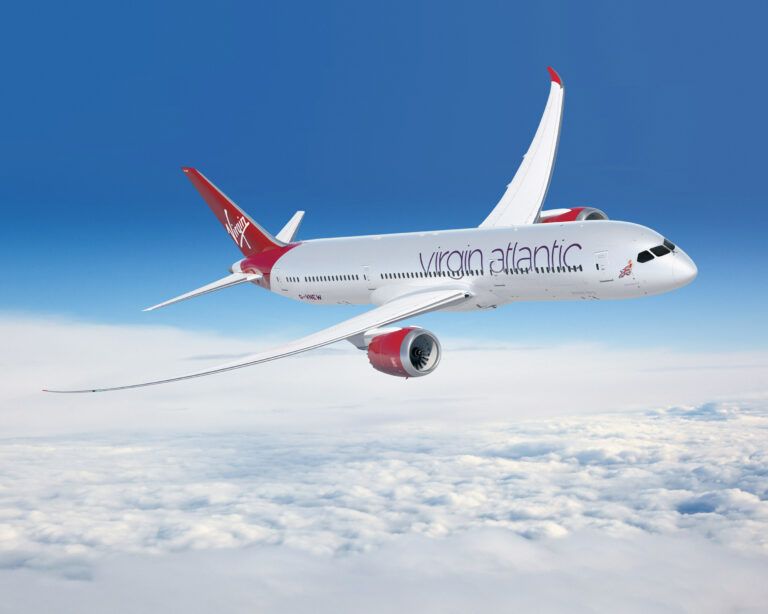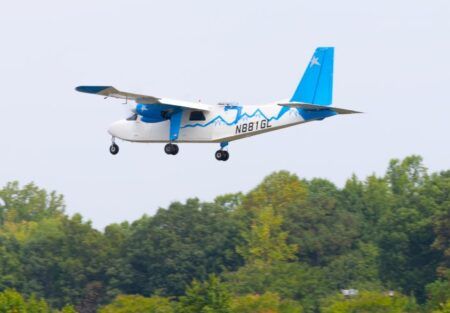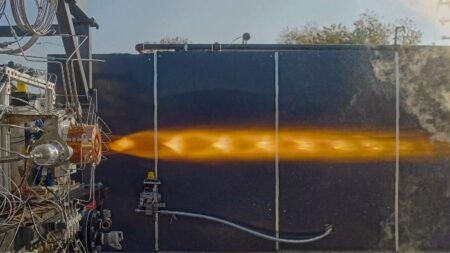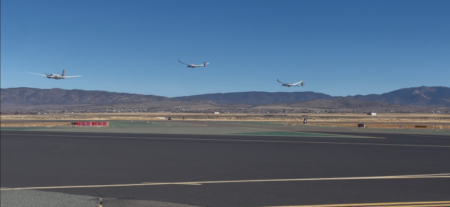Virgin Atlantic has operated a transatlantic flight using 100% Sustainable Aviation Fuel London Heathrow to New York JFK for the first time.
Sustainable Aviation Fuel (SAF) currently represents less than 0.1% of global jet fuel volumes and fuel standards allow for just a 50% SAF blend in commercial jet engines.
However, many aviation insiders believe that SAF will play a significant role in the decarbonization of long-haul aviation, and the pathway to Net Zero 2050. The fuel when made from waste products, can deliver CO2 lifecycle emissions savings of up to 70%, whilst performing like the traditional jet fuel it replaces.
As well as proving the capabilities of SAF, Flight100 will assess how its use affects the flight’s non-carbon emissions with the support of consortium partners ICF, Rocky Mountain Institute (RMI), Imperial College London and University of Sheffield.
The research will improve scientific understanding of the effects of SAF on contrails and particulates and help to implement contrail forecasts in the flight planning process. Data and research will be shared with industry, and Virgin Atlantic will continue its involvement with contrail work through RMI’s Climate Impact Task Force, which is part-funded by Virgin Unite.
The SAF used on Flight100 is a dual blend of 88% HEFA (Hydroprocessed Esters and Fatty Acids) supplied by Air bp and 12% SAK (Synthetic Aromatic Kerosene) supplied by Virent, a subsidiary of Marathon Petroleum Corporation.
The HEFA is made from waste fats while the SAK is made from plant sugars, with the remainder of plant proteins, oil and fibres continuing into the food chain. SAK is needed in 100% SAF blends to give the fuel the required aromatics for engine function.
Shai Weiss, CEO of Virgin Atlantic said, “Flight100 proves that Sustainable Aviation Fuel can be used as a safe, drop-in replacement for fossil-derived jet fuel and it’s the only viable solution for decarbonizing long-haul aviation.
“It’s taken radical collaboration to get here and we’re proud to have reached this important milestone, but we need to push further. There’s simply not enough SAF and it’s clear that to reach production at scale, we need to see significantly more investment. This will only happen when regulatory certainty and price support mechanisms, backed by Government, are in place. Flight100 proves that if you make it, we’ll fly it.”
Sheila Remes, vice president of environmental sustainability, Boeing said: “In 2008 Virgin Atlantic and Boeing completed the first commercial SAF test flight on a 747 and today we will accomplish yet another significant milestone utilizing a 787 Dreamliner. This flight is a key step toward our commitment to deliver 100% SAF-compatible airplanes by 2030. As we work toward the civil aviation industry’s net-zero goal, today’s historic journey highlights what we can achieve together.”





